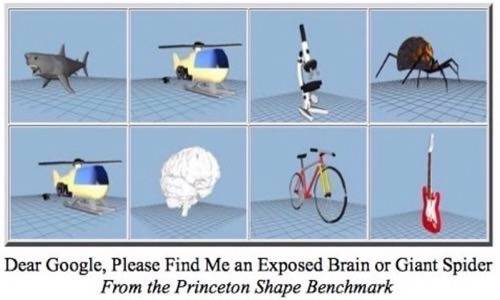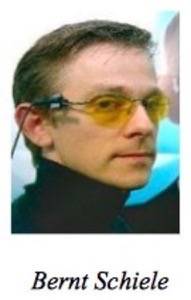If Google’s mission is to organize the whole world’s information, it makes sense for the company to look a few steps ahead. Today the Google Research team highlighted seven academic researchers whose work has captured the company’s imagination.

Juan E. Vargas, who works at Google’s University Relations department, says submissions to the company’s University Research Awards program are at an all-time high. He summarized some of the most interesting scientific work the company has seen lately in a blog post today; the projects range from using Street View to construct semantically-marked up 3D models of cities to sending camera kits to kids in developing countries so they can learn some engineering and share photos with the world online. These are the scientific projects Google believes could make the world, and its business, better.
Here are the research projects Vargas pointed to as particularly interesting.
Thomas Funkhouser of Princeton University is working to “develop methods for automatic construction of semantically-labeled, detailed, and photorealistic 3D models of cities from Street View data.” Robots reading street signs via Google Maps? More like recognizing fire hydrants and parking meters for now, it seems. Funkhouser’s research is all about 3D search and could contribute to the kind of searchable “internet of things” we’ve been hearing about.

Michael Wellman of University of Michigan is working on a game that will simulate advertisement auctions so as to learn from bidders’ strategies. Sounds atrociously boring to anyone outside the ad world, but if you’re Google then this is the kind of thing you’re into.
Adnan Yahya, at the Birzeit University in Palestine is doing research on systems aimed to tackle the unique challenges of analyzing and searching Arabic textual data. He’s starting with local news.
Allison Druin at the University of Maryland is doing research titled “When Children Search: Understanding what they do and what they could do with Google Search.” Druin wants to figure out how to help children ages 5 through 13 find what they are looking for better on the internet.
Shree Nayar is working at Columbia University on a project that will send “camera kits” to children in poor communities around the world. The kids will learn some science and engineering in assembling the cameras and then they will upload photos from their lives to Picassa for sharing with others around the world. One part art, one part science, one part empathy – sounds great.
Bernt Schiele, of Technische Unversitat Darmstadt in Germany is doing what might be the most far-out research discussed here. He’s a wearable computer and sensor geek and is developing a system to measure distances in large collections of images, both automatically and with limited human intervention.

Michael Franklin, of the University of California at Berkeley, is developing a framework for measuring improvement in the integration of different kinds of data. Sounds like fun!
These all sound like important and interesting research projects. Machine discovery and markup of physical objects from map images; distance discernment from large collections of images – if those don’t sound like projects pointing to the next step of the web then we don’t know what does. It’s nice to see that not everything being considered is so bleeding edge technically, though.
It’s got to be a thrill to have your work highlighted by Google. May these brave scientists build a better web for us all!

















